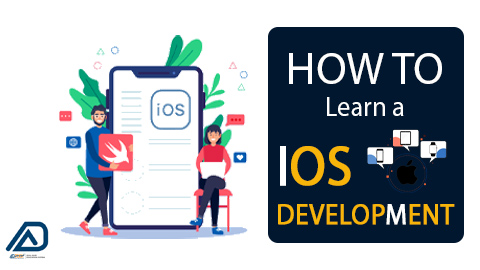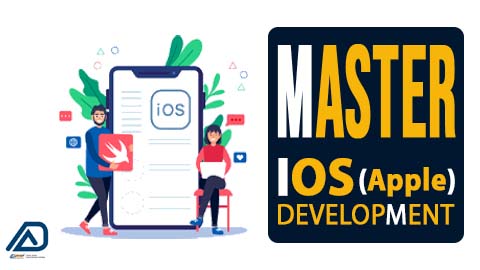What you'll learn
Learn the Basics of Swift: Swift is the primary programming language for iOS development. Your first objective should be to understand its syntax, data types, and basic programming constructs.
Understand UIKit: UIKit is a fundamental framework for building iOS user interfaces. Learn how to create views, buttons, labels, and other UI elements, and how to use Interface Builder to design app layouts.
Master Xcode: Familiarize yourself with the Xcode integrated development environment (IDE), which is essential for iOS app development. Learn how to navigate the IDE, create and manage projects, and utilize its debugging and testing tools.
App Lifecycle: Gain a deep understanding of the iOS app lifecycle, including how apps launch, run, enter the background, and terminate. Learn how to handle various app states effectively.
Navigation and Storyboards: Learn to use storyboards to design app navigation and interfaces, including how to implement navigation controllers, tab bar controllers, and segues.
Table Views: Master table views and understand how to display lists of data in iOS apps. Learn how to populate and customize table view cells.
User Authentication: Learn how to implement user authentication and authorization in your apps. This might include email/password logins, social media logins, or other authentication methods.
Networking and APIs: Learn how to make network requests and handle data from web services and APIs. Familiarize yourself with URLSession and JSON parsing.
Debugging and Testing: Develop skills in debugging and testing your iOS apps. Learn how to identify and fix bugs and optimize your code.
Performance Optimization: Understand how to optimize your app's performance, including reducing memory usage, optimizing code, and improving user experience.
Master in iOS Development
What is iOS Development? Meta Description: Discover Flutter, an open-source …
What you'll learn
Learn the Basics of Swift: Swift is the primary programming language for iOS development. Your first objective should be to understand its syntax, data types, and basic programming constructs.
Master Xcode: Familiarize yourself with the Xcode integrated development environment (IDE), which is essential for iOS app development. Learn how to navigate the IDE, create and manage projects, and utilize its debugging and testing tools.
Understand UIKit: UIKit is a fundamental framework for building iOS user interfaces. Learn how to create views, buttons, labels, and other UI elements, and how to use Interface Builder to design app layouts.
App Lifecycle: Gain a deep understanding of the iOS app lifecycle, including how apps launch, run, enter the background, and terminate. Learn how to handle various app states effectively.
Navigation and Storyboards: Learn to use storyboards to design app navigation and interfaces, including how to implement navigation controllers, tab bar controllers, and segues.
Table Views: Master table views and understand how to display lists of data in iOS apps. Learn how to populate and customize table view cells.
Data Storage: Explore various options for data storage, such as UserDefaults, Core Data, and file system storage. Understand when to use each method based on your app's requirements.
Networking and APIs: Learn how to make network requests and handle data from web services and APIs. Familiarize yourself with URLSession and JSON parsing.
User Interface Design: Gain skills in creating user-friendly and visually appealing app interfaces. Understand design principles, including layout, typography, and user experience (UX) design.
User Authentication: Learn how to implement user authentication and authorization in your apps. This might include email/password logins, social media logins, or other authentication methods.
Notifications: Understand how to use local and remote notifications to keep users informed about app events, updates, and messages.
Core Animation and Graphics: Explore Core Animation and Core Graphics frameworks to create animations, custom graphics, and visual effects in your apps.
Debugging and Testing: Develop skills in debugging and testing your iOS apps. Learn how to identify and fix bugs and optimize your code.
App Store Guidelines: Familiarize yourself with Apple's App Store guidelines to ensure your apps meet the necessary requirements for submission and approval.
Version Control: Learn to use version control systems like Git to manage and collaborate on your code effectively.
Performance Optimization: Understand how to optimize your app's performance, including reducing memory usage, optimizing code, and improving user experience.
Continual Learning: iOS development is a constantly evolving field. Set a learning objective to stay updated with the latest iOS updates, frameworks, and best practices.




